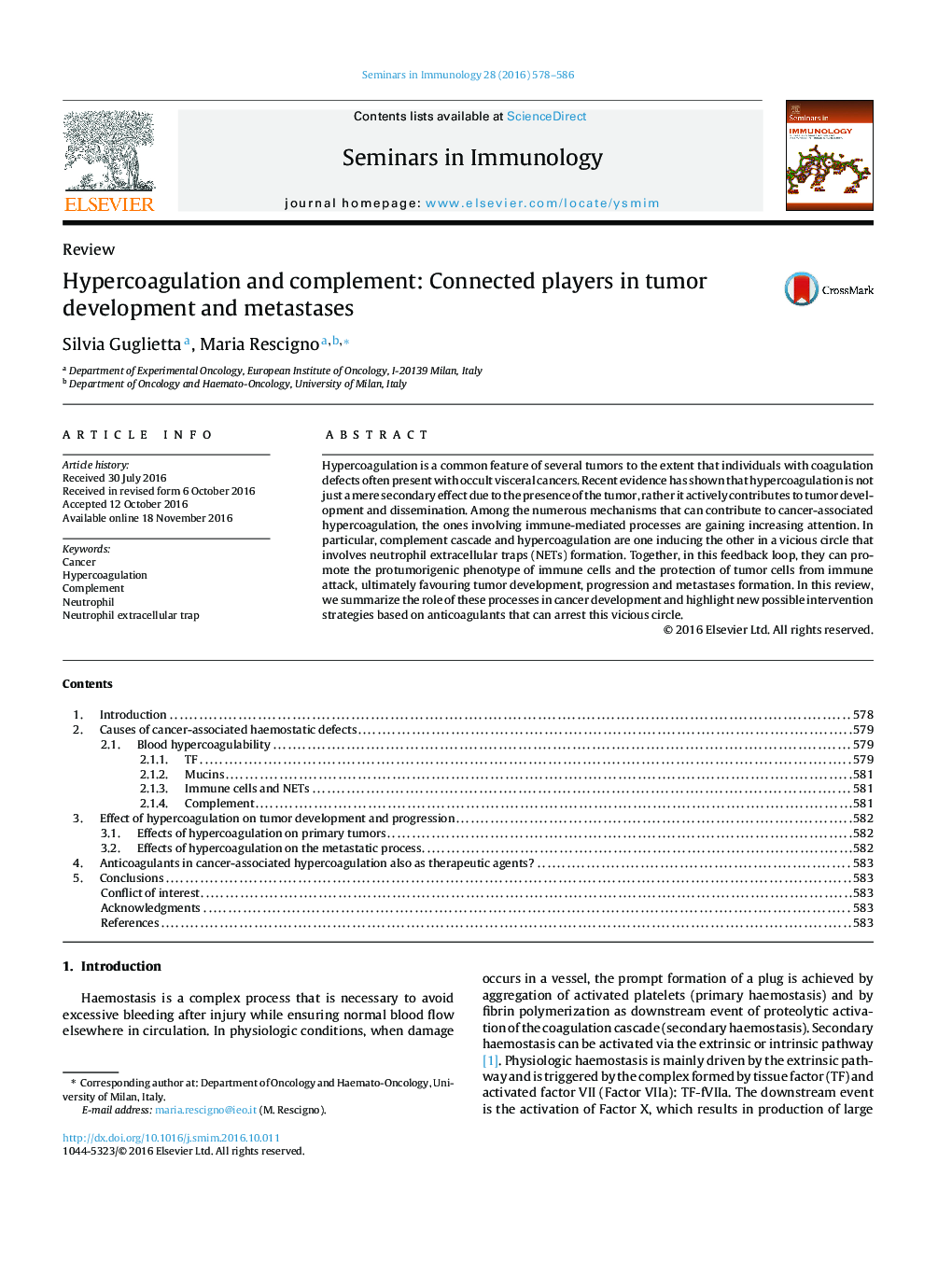| کد مقاله | کد نشریه | سال انتشار | مقاله انگلیسی | نسخه تمام متن |
|---|---|---|---|---|
| 5670418 | 1408010 | 2016 | 9 صفحه PDF | دانلود رایگان |

- The immune system plays a key role in cancer-associated hypercoagulation.
- Complement and NETs contribute to cancer-associated hypercoagulation.
- Hypercoagulation can induce protumorigenic immune cells.
- Hypercoagulation favours tumorigenesis and metastases by blunting immune function.
- Anticoagulants acting on NET and complement might also reduce tumor burden.
Hypercoagulation is a common feature of several tumors to the extent that individuals with coagulation defects often present with occult visceral cancers. Recent evidence has shown that hypercoagulation is not just a mere secondary effect due to the presence of the tumor, rather it actively contributes to tumor development and dissemination. Among the numerous mechanisms that can contribute to cancer-associated hypercoagulation, the ones involving immune-mediated processes are gaining increasing attention. In particular, complement cascade and hypercoagulation are one inducing the other in a vicious circle that involves neutrophil extracellular traps (NETs) formation. Together, in this feedback loop, they can promote the protumorigenic phenotype of immune cells and the protection of tumor cells from immune attack, ultimately favouring tumor development, progression and metastases formation. In this review, we summarize the role of these processes in cancer development and highlight new possible intervention strategies based on anticoagulants that can arrest this vicious circle.
Journal: Seminars in Immunology - Volume 28, Issue 6, December 2016, Pages 578-586